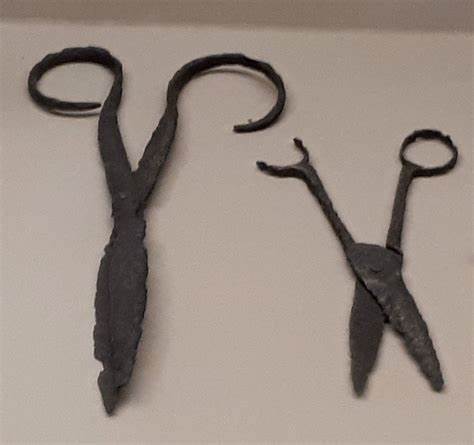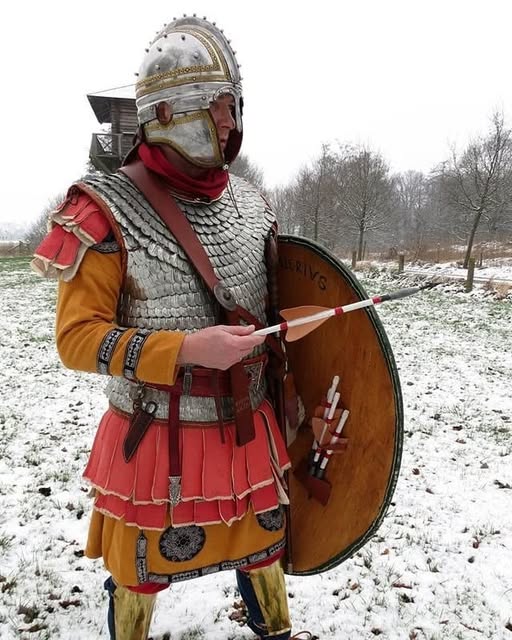Standard issue scissor holster?
Historical Artifacts
Just a community for everyone to share artifacts, reconstructions, or replicas for the historically-inclined to admire!
Generally, an artifact should be 100+ years old, but this is a flexible requirement if you find something rare and suitably linked to an era of history, not a strict rule. Anything over 100 is fair game regardless of rarity.
Generally speaking, ruins should go to [email protected]
Illustrations of the past should go to [email protected]
Photos of the past should go to [email protected]

Medicus!
With all seriousness, I'm not sure if that's something kept for the re-enactor's convenience or if it is actually meant to represent something historical.
I legit did not know this was a thing. Thanks!
It wouldn't be until December 19, 1988 that the plumbata would be banned for recreational use.
Snow's father David began to advocate for a ban on lawn darts, claiming that there was no way to keep children from accessing lawn darts short of a full ban
If only somebody would see it the same with guns…
Plenty of people see it that way, unfortunately the NRA has been funded by those who think of it as a net positive every time one American kills another with a gun, and they've used that money to drum up fear in our most vulnerable and weak-minded citizens, the conservatives.
Nearly 2000 years of tradition, cut down by philistines!
Lol, beat me to it!
I thought the javelin was Greek and the pilum was Roman. I don't see how these could actually replace a javelin or plumbing since part of the point was to use the weight to force the enemy to drop their shield. I'm no historian, though.
Cost savings measure. In addition to being heavy for the troops to carry, it was expensive to make.
Javelin is a generic term, pilum is a term for a specific kind of Roman javelin. The replacement is in that Roman soldiers started carrying these darts instead of pila - while pila were more general-purpose and heavy-duty weapons, these light plumbata were much more of a harassing tool that a soldier could carry more of.
How would they throw the darts? Like I threw lawn darts as a kid, trying to get them as high as possible in a parabola, or would they throw them shuriken style, right at the charging hordes?
You throw them in a straight line at short range, mostly at the horses of cavalry charging at you.
Questions like that are often hotly debated in experimental archeology! My thinking is high, in a parabola, as they were meant as harassing weapons, but as far as I know there's no consensus.
I mean, they are versatile, so they probably had different tactics that suited various engagements.
We don't have a clear answer on this. There was a video I saw once that you might be able to find on YouTube still where a guy experimented with him and tried different methods. Frankly didn't really solve the question for me. They all seem somewhat viable. Underhand straightforward seem to work all right. Kind of like a javelin kind of worked although maybe not the best. They also tried kind of loping overhand so it came down on top of them sort of like you're implying. Considering the weight of them I think that might make the most sense.
It's JARTS! Used for their true purpose
I've never seen any evidence that said they replaced the javelin. More of a supplement or alternative.
Replaced in the sense that the plumbata became the widespread standard, not replaced in the sense that javelins were no longer used by any legionaries.
